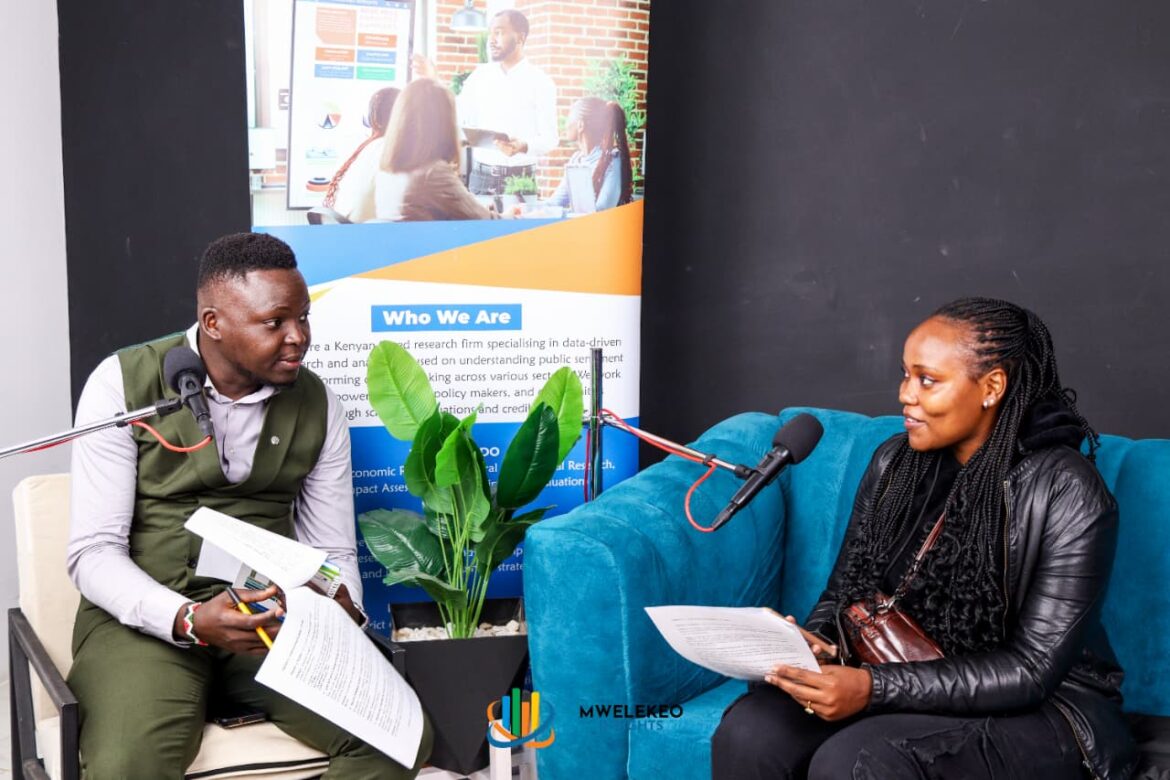Mwelekeo TV has stepped into the public space with its very first episode, opening up discussions on issues that affect Kenyans in their daily lives.
The platform is part of Mwelekeo Insights, a group dedicated to collecting and studying opinions and facts about the major questions facing the country.
Their new podcast introduces who they are, what they want to achieve, and why their work matters at a time when Kenya is dealing with political, social, and economic changes.
The episode sets out their background and the vision behind their work. Mwelekeo Insights was created to gather people’s thoughts on the issues that shape society and then turn that information into useful knowledge for both leaders and citizens. They make a point of using methods that are clear and fair, ensuring their studies give an honest picture of what is happening.
This helps move away from guesswork and gives people a chance to make decisions based on facts. By focusing on areas like poverty, health care, education, and government projects, they hope to influence both public debate and policymaking.
In the discussion, the team also explains why independent research is important for the country today. Kenya has been facing many challenges, from economic pressure to shifting political moods, and depending only on media reports often leaves gaps in understanding.
Mwelekeo TV aims to fill those gaps by taking findings from research and presenting them in a way that anyone can understand and engage with.
Their podcast is designed to make these conversations open to the wider public, so that citizens can share in shaping the dialogue around issues that matter to them.
They also highlight a number of studies that they have carried out. One examined how Kenyan men view the cultural practice of bride price, showing the differences across age groups, locations, and income levels.
Another looked at how older Kenyans, especially those above 30, view young people after the protests in June 2024, bringing out the growing generational divide and the role of youth in shaping society.
They have also studied the effects of government financial policies, such as taxation and spending, on ordinary homes and businesses.
Other research includes how Kenyans judge the cabinet team picked by President Ruto in January 2025, especially in terms of their qualifications and public trust. They have even gone into how young women, under the age of 30, view marriage in the present day, showing how attitudes are changing with time.
The first episode of Mwelekeo TV makes it clear that their work is not just about numbers but about connecting facts with stories that touch on everyday experiences.
They believe that real change comes when data and dialogue meet, because information without conversation is incomplete, and conversation without facts lacks strength.
The podcast is one way of ensuring that Kenyans can take part in discussions that are informed by evidence.
For those interested in keeping up, Mwelekeo TV is available on YouTube, and the team promises more episodes that will cover important issues in the days ahead.
With only a few people watching so far, it gives an opportunity to join early and be part of the conversation as it grows.
Kenya is in a period of transition, and platforms like this aim to help people understand the changes, make better choices, and have a stronger voice in shaping the nation’s future.



